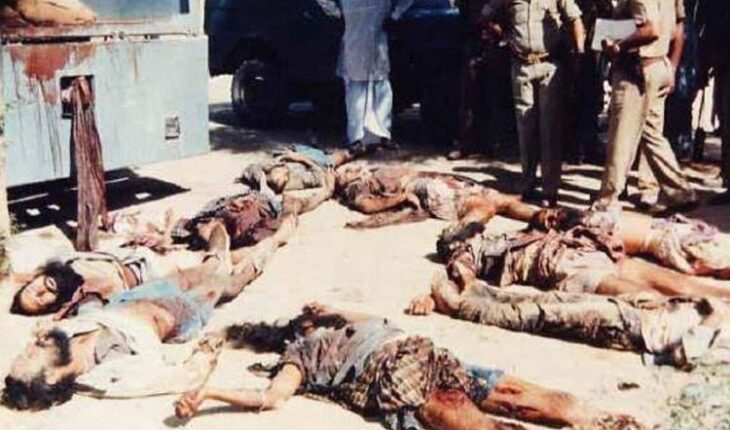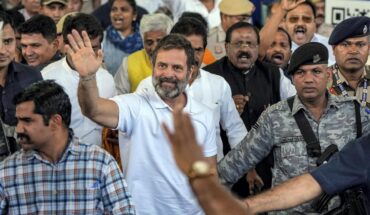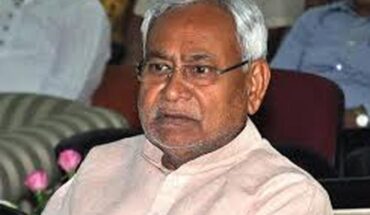Even as 33 years have passed, justice is yet to be delivered to the victims of the anti-Sikh riots. The wounds of the violence — which broke out after the assassination of then prime minister Indira Gandhi on October 31, 1984, and had claimed 2,433 lives in Delhi alone – have still not healed.
At least 10 commissions have been set up since November 1984 to document and investigate the progrom. Yet less than one per cent of the accused have been convicted. Some of the Congress leaders, who were named as having participated in the killings, such as HKL Bhagat have since then died without facing trial. Others like Sajjan Kumar, Jagdish Tytler and Kamal Nath are still around.
Reports suggest that the Ranganath Misra Commission, the first panel to investigate the massacre recorded their statements in private, in the absence of the victims, and absolved Rajiv Gandhi’s government of responsibility. Several Congress and non-Congress governments came to power at the Centre. But, unfortunately, no tangible progress could be seen on the cases.
The Vajpayee regime had set up the Nanavati Commission in May 2000. Its report was tabled by Manmohan Singh’s government in 2004. The panel had stated that what had initially begun as an angry outburst soon turned into an organised carnage. The commission reported that there was credible evidence against local leaders and workers of the then-ruling Congress party. However, no recommendations were made for further action against many of them. Manmohan Singh apologised to the country on the Congress’ behalf. Tytler, who is one of the key accused, lost his ministry. But nothing concrete came out in the name of justice. Only recently, Abhishek Verma, a witness in the 1984 riots case, filed a writ complaint with Delhi Police, requesting for an enhanced protection after he got an email threatening to roast and eat his family if he testified against Tytler.
The Narendra Modi-led National Democratic Alliance, after coming to power in 2014, constituted a committee headed by GP Mathur to look into the matter. The panel recommended setting up of a Special Investigation Team (SIT) to re-examine the cases of the anti-Sikh riots. The SIT, after visiting police stations and accessing the files of previous committees which had gathered evidence, ordered the closure of 241 cases.
Had it not been the people like human rights lawyer HS Phoolka, who is fighting for justice for anti-Sikh riot victims since day one, the cases of the 1984 massacre would have gone under the carpet long back. “We will pursue justice with same spirit, for it is innocent citizens who are dead, not the law,” says Phoolka, who recently quit as the Leader of Opposition in Punjab Assembly to take up cases of riot victims. Following the footsteps of Simon Wiensental, whose 63 years hunt for Nazis helped him get a commandant nailed after 50 years of the World War, justice seekers have maintained their pressure on governments and judiciary even after more than three decades. It is for their efforts that the victims are hopeful and the system is unable to bury the deads in legal files.
In August 2017, the Supreme Court named its former judges JM Panchal and KSP Radhakrishnan as members of a supervisory panel to scrutinise 241 cases related to the 1984 anti-Sikh riots in Delhi closed by the SIT that was formed by the NDA government for a re-probe. The Delhi High Court in March reopened five cases in connection with the progrom that was closed in 1986. Earlier, the apex court had directed the Centre to deposit more than 190 files in connection with the case. The counsel of ex-MLA Mahender Singh Yadav, who was convicted in the 1984 massacre case but acquitted in 1986, was asked searching questions by the Delhi High Court regarding the trial process.
Political pressure is also being made. A group of MPs has written to Modi expressing dismay over the continued impunity for those responsible for over three decades and have appealed to him to accord high priority to the issue and bring justice to the victims. But then, mere community and political pressure can’t do much, unless there is political will to deliver smooth and fair justice to the 1984 anti-Sikh riots victims.






